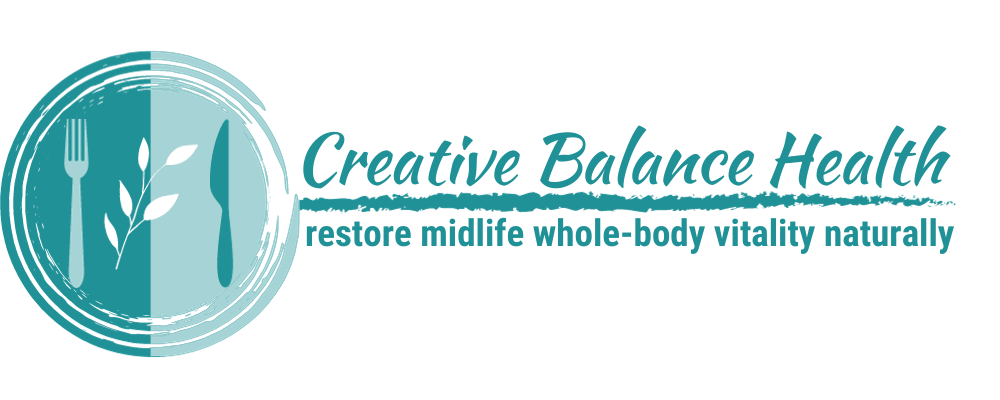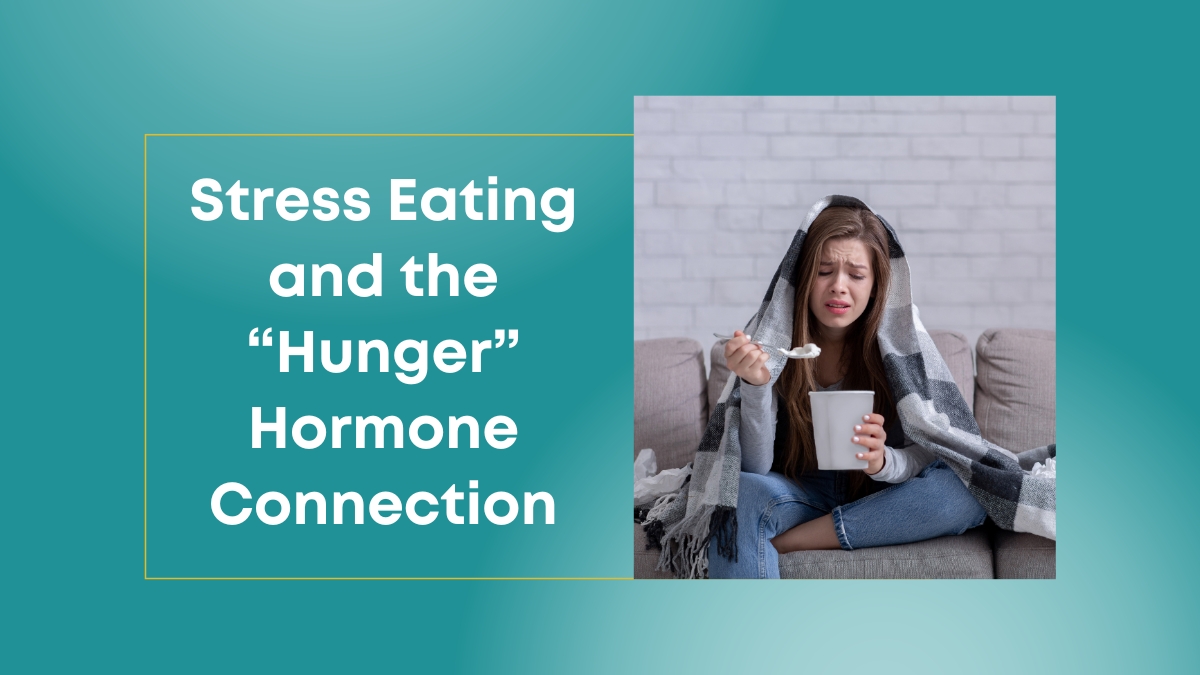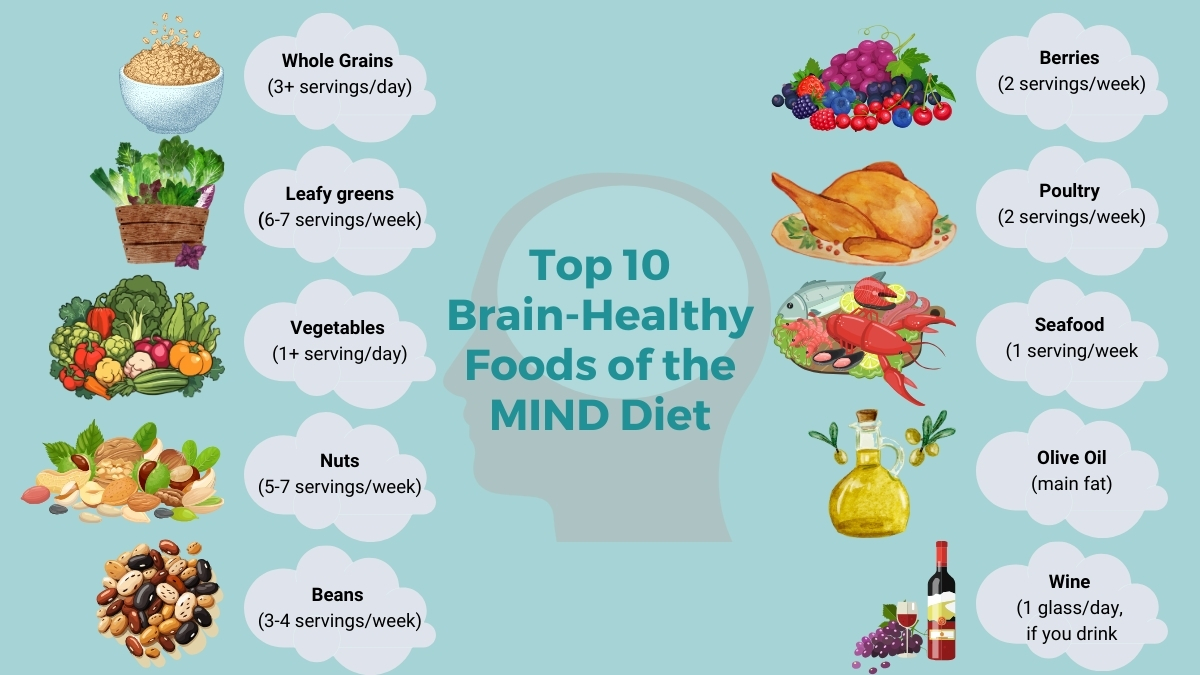Yes, stress makes you hungry . . . and now we know why.
April is Stress Awareness Month. Stress can be emotional, biomechanical, and biochemical. It is important to note that good health can only be maintained when stress is minimal, no matter how exceptional the diet and exercise regimen may be. My clients in the Greater Seattle, Washington area, down to San Diego, come to me for help with their fatigue, digestive health, and weight problems. By addressing these issues’ underlying stressors and other root causes, they can restore their energy and finally look and feel like themselves again.
You may have noticed that I write a lot about stress and its contributing relationship to most diseases, chronic health conditions, poor sleep, and weight gain.
Stress eating. Yes, it’s a thing.
I learned this the hard way in college, working under deadlines in my media career, during messy relationships, and certainly over the past two years of the pandemic.

When you feel stressed, you probably experience one or more of the “fight,” “flight,” or “freeze” reactions. These reactions are related to stress hormones that impact your physical body when your brain feels threatened or challenged. You may have heard of the stress hormones adrenaline and cortisol. But the more we look into human physiology, the more we learn.
Of course, there are so many symptoms of stress, one of which is the need to start searching around for a quick, convenient snack. That’s a pretty common experience, and now researchers have uncovered a link as to why.
A recent study published in Nutrients aimed to investigate the potential link between stress and hunger. The study examined several studies that met its quality criteria, each rating at least a six out of eight on its assessment. The researchers combined the results of ten studies and analyzed them from a “birds-eye view” to better understand the relationship between stress and hunger. This approach makes the study particularly compelling as it comprehensively analyzes the available evidence.
What they found consistently through these studies was that when people were subjected to stress, they released another “stress” hormone called ghrelin.
When study participants were exposed to short-term stress (e.g., their non-dominant hand was placed in ice water for two minutes), their ghrelin levels quickly increased and then slowly decreased as minutes and hours went by. Another interesting thing is that we don’t know why ghrelin decreases after stress is removed. We used to think that ghrelin levels came down after finding and eating food, but that wasn’t the case here. More studies are needed to shed light on this finding.

The researchers wanted to take this one step further. Because we know that stress is tied to excess weight and excess weight is a source of stress, they wondered if the stress-ghrelin response was different in people experiencing overweight and obesity. They found that people with excess weight tended to have higher levels of ghrelin that lasted even longer than stressed people without excess weight. It’s not clear right now which comes first: increased ghrelin in response to weight or increased weight in response to ghrelin, but there certainly seems to be a correlation.
The “hunger” hormone ghrelin is also a stress hormone, and people who are overweight and obese tend to have higher levels of ghrelin when stressed.
What can you do with the information found in this new study?

While more research is needed to dig further into ghrelin as a hunger and stress hormone, one interesting takeaway was that the ghrelin levels decreased even without eating. So, if you’re compelled toward stress eating when you’re not truly hungry, know that the impulse will decrease even without satisfying it. You can embrace your emotions instead of avoiding them and schedule time in the day to decompress. (I cover this in “3 Secrets to Eliminate Emotional Eating”)
We all experience stress, so finding positive ways to manage it can be helpful. Some strategies I use in my Fatigue Fix + Focus Formula Program (and also outlined in “5 Simple Mind Altering Strategies to Reduce Your Stress”) include:
- Reframing. Changing how you respond to mental and emotional stress. (Learn more with 4 Tips to Transform Your Mind)
- Tend and befriend. Seek connection with safe relationships and networks.
- Live in the present. Take some time just to be and do something that calms your mind and body with practices such as yoga, meditation, walking, sitting in nature, etc… (Read “5 Ways to Experience Nature for Fun & Health”)
- Pay attention to your body. Building your physical self-care with nutritious foods, sleep, and physical activity. Indulge your senses. (Check out 4 Tips for Your Best Night of Sleep Yet and 3 Ways to Move Your Body Without Working Out)
- Breathe. Taking a few deep breaths in combination with visualization for only six seconds engages the vagus nerve and activates your body’s natural relaxation response.
Stress reduction, diet, rest, exercise, and supplement support when needed are the foundational pillars of good health. If you suspect stress-induced ghrelin and other “gremlins” may be contributing to your fatigue, weight gain, and digestive health problems, I can help.
Click here to Schedule a Free Consultation to discuss.

Reference:
Bouillon-Minois, J. B., Trousselard, M., Thivel, D., Gordon, B. A., Schmidt, J., Moustafa, F., Oris, C., & Dutheil, F. (2021). Ghrelin as a Biomarker of Stress: A Systematic Review and Meta-Analysis. Nutrients, 13(3), 784. https://doi.org/10.3390/nu13030784 https://www.ncbi.nlm.nih.gov/pmc/articles/PMC7997253/







